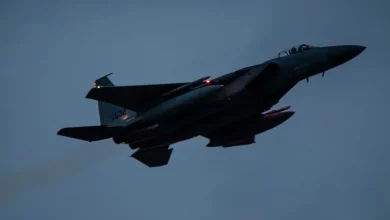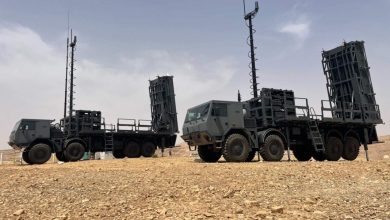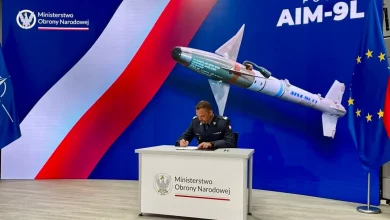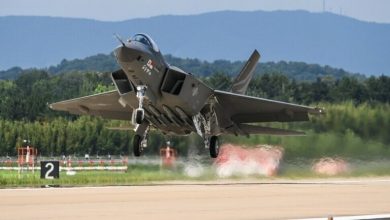Analysis: How to read UK’s YPG policy?

The UK does not recognize YPG as a terror group despite recognizing PKK as a terrorist organization and even admitting the relationship between YPG and PKK
The United States comes to the fore in terms of foreign support for the YPG, the Syrian branch of the terrorist organization PKK. However, Turkish Foreign Minister Hakan Fidan recently said: “There are 2.5 active members with whom we have a problem on YPG. The US, the UK, and a little bit of France,” hence the other dimensions of foreign support to the YPG came to the agenda. In fact, European countries have programs and support for the YPG regions in Syria. However, this support is mostly in the form of financial and technical support to civilian and administrative structures established by the YPG, capacity building projects, reconstruction programs or “humanitarian aid.” What makes the US, the UK, and France stand out is that the support includes a military dimension in addition to civilian aid. In the military support dimension, “air support, intelligence sharing, arms supply, military training, and operational support provided to the YPG within the framework of the Coalition Against DAESH” come to the fore. The UK states that it “provides air support to the SDF, but does not provide any other military support to the organisation.”
Financing terrorism under the pretext of fighting against Daesh/ISIS
The UK’s support for the YPG should be evaluated in parallel with the US intentions regarding Syria and the YPG. In this context, the UK’s first contact with the YPG developed within the scope of the Coalition Against Daesh/ISIS. The UK’s participation in the Counter-Daesh/ISIS Coalition was based on its own perceptions of security threats and its support for similar US missions. In this context, the UK provided air support to the YPG in the first phase. In addition to the support of the British Air Force, the presence of British Special Forces in Syria has been documented by British publications. At the beginning of 2024, five special forces soldiers were detained in the UK for allegedly committing war crimes in Syria. Therefore, it can be said that the British Special Forces provide both intelligence and operational support to the YPG in critical operations on the ground. With the YPG’s control over large areas over time, a new reality has emerged in the north-east of Syria. After this stage, just like the US, one of the priorities of the UK’s Syria policy was to provide political status to this new structure. From this point on, the UK started to provide technical and financial support to the civilian and administrative structures established in the YPG-controlled areas under the name of “reconstruction, stabilization, and humanitarian aid.”
Implicit dimensions
The UK’s military support to the YPG also has an implicit dimension. Two elements stand out at this point. The first is the foreign terrorists fighting in the ranks of the YPG. When the studies on this subject are analyzed, it is seen that among the foreign terrorists fighting in the ranks of the YPG, the US, British, and German citizens stand out by far. This finding is important in terms of understanding from which countries the YPG can receive support. On the other hand, the British courts ruled that British citizens who participated in clashes in the ranks of the YPG in Syria were not involved in terrorist activities. In the same resolutions, it is recognized that the YPG provides training to British citizens, but it is noted that this training is not for terrorist purposes but for the fight against Daesh/ISIS. Another covert support is the British private military companies operating in Syria. Studies have also revealed that almost all of the British citizens and British private military company fighters fighting in the ranks of the YPG are former soldiers. The YPG uses this support to train its militants and receive operational contributions.
Political support
The last dimension of the UK’s support to the YPG is political. Although the UK does not officially recognize the civilian structures established by the PYD/YPG or the so-called federal structure unilaterally declared by the YPG, it states that “the governance structures established by the YPG are compatible with its values.” In addition, the UK supports the inclusion of “Syrian Kurds,” which it claims to be represented by the PYD/YPG, in the political solution through the rhetoric that “all Syrians should take part in Syria’s political solution efforts.” As an extension of the same stance, the UK, as in the case of the US, also acted as a mediator for reconciliation between the PYD and the Syrian Kurdish parties. In this way, an attempt was made to unite the “Syrian Kurds” and create a “legitimate political actor” of which the PYD/YPG would be the main backbone, but which would be able to overcome Türkiye’s objections.
Despite all these, there are some points where the UK differs from the US in its support for the YPG. The main difference in the UK’s policy is on the acceptance of the YPG’s ties with the PKK terrorist organization. In this context, the statements of the former and current British ambassadors to Ankara that “they are aware of the PYD/YPG’s connection with the PKK and that they stand by Türkiye in the fight against the terrorist organization” can be given as an example. The British Foreign Office has also reported that “the YPG does not allow any political opposition movement in the areas it controls.” The UK also admits that it has relations with the YPG/PYD, but states that it has pressured the YPG to limit its relations with the PKK in these talks. Although the UK recognizes the PKK as a terrorist organization and even admits the relationship between the YPG and the PKK, it does not recognize the YPG as a terrorist organization.
There are two main reasons why the UK adopts a more balanced discourse compared to the US. Firstly, unlike continental Europe, the UK attaches strategic importance to relations with Türkiye and tries to maintain a more balanced relationship with the YPG, at least at the discursive level. The UK is also skeptical about the US determination to continue its support for the YPG until the end. No European country, including the UK, is in a position to realize its objectives in Syria without the US. In an environment where the US is considering withdrawal from Syria, it can be said that it will not be possible for any Western country, including the UK, to remain in Syria. Therefore, in an environment where there are serious doubts about the US’ permanence in Syria, the UK does not want to be left in the lurch by confronting Türkiye.
Source: AA





